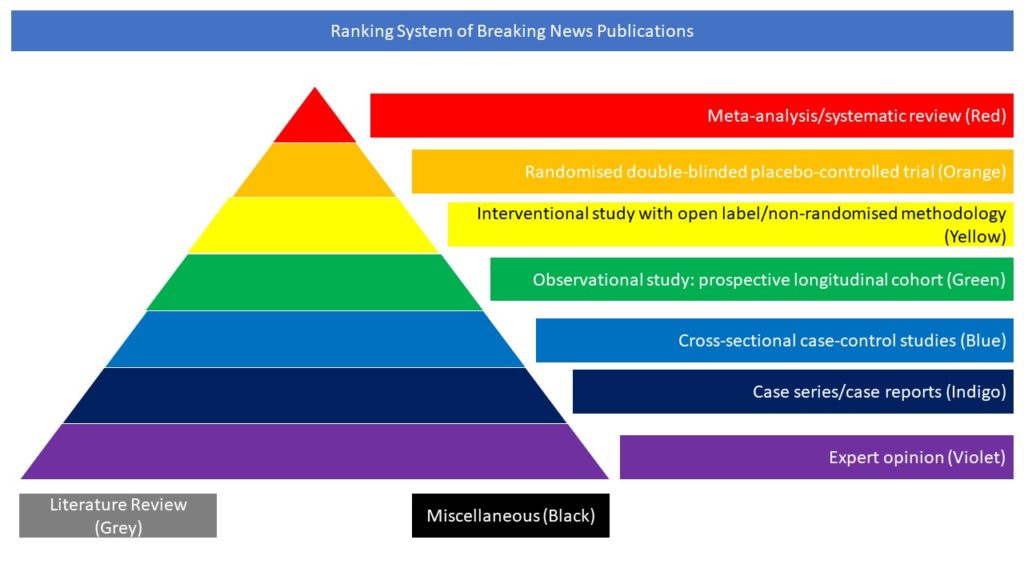Cross-sectional case-control studies (Blue)
In this retrospective cohort study, the authors aimed to develop a sensitive risk assessment score predicting the risk of mortality in patients with COVID-19 using complete blood count (CBC) during hospitalisation. A total of 13,138 in-patients with COVID-19 in Hubei Province, China, and Milan, Italy were included. Among them, 9,810 with ≥ two CBC records from Hubei province were assigned to the training cohort. CBC parameters were analysed as potential predictors for all-cause mortality and were selected by the generalised linear mixed model (GLMM). Five risk factors were derived to construct a composite score (PAWNN score) using Cox proportional hazards regression model, including platelet count, age, white blood cell count, neutrophil counts, and Neutrophil/lymphocyte ratio. PAWNN score showed good accuracy for predicting mortality in 10-fold cross-validation (AUROCs 0.92-0.93) and subsets with different quartile intervals of follow up and pre-existing diseases. The performance of the score was further validated in 2,949 patients with only one CBC record from Hubei Cohort (AUROC 0.97) and 227 patients from the Italian cohort (AUROC 0.80). The Latent Markov Model (LMM) yielded discernible patient’s statuses, among which the PAWNN score was a distinguishing feature. PAWNN score showed good predictive power for transition probabilities between different latent conditions.
The authors concluded that the PAWNN score is a simple and accurate risk assessment tool that can predict the mortality risk for COVID-19 patients during hospitalisation.








